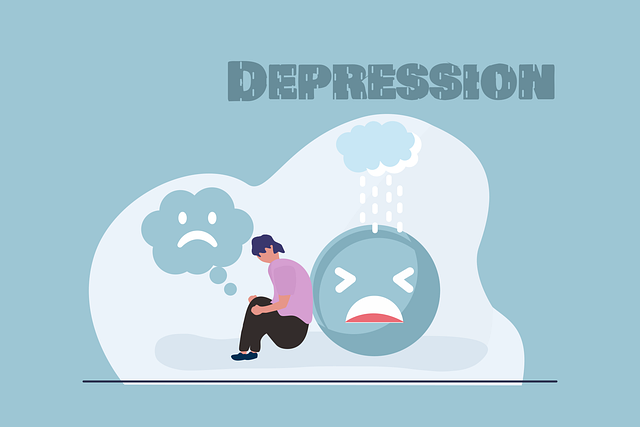The RFM framework, focusing on resilience, flexibility, and motivation, is a powerful tool to tackle stress-related workplace issues, particularly in healthcare, where burnout is prevalent. By implementing strategies like mindfulness exercises and regular check-ins, inspired by Littleton Workplace Issues and Job Stress Therapy, organizations can create a supportive culture that promotes employee well-being. Building resilience through various techniques helps professionals manage stress, improve job satisfaction, and enhance overall mental health, ultimately fostering a harmonious work environment.
“In today’s dynamic work environment, fostering resilience among employees is more critical than ever. This article explores the power of RFM (Resilience, Flexibility, and Mobility) as a framework for enhancing workplace well-being. We delve into the profound impact of Littleton workplace issues and job stress on mental health, offering insights that can revolutionize organizational therapy. Additionally, we provide practical resilience-building exercises and strategies for employers to create a supportive culture, ensuring employees thrive despite challenges.”
- Understanding RFM: A Framework for Resilience in the Workplace
- The Impact of Littleton Workplace Issues and Job Stress on Employees
- Effective Resilience Building Exercises for Countering Stress and Promoting Well-being
- Implementing RFM Strategies: Tips for Organizations to Foster a Resilient Work Culture
Understanding RFM: A Framework for Resilience in the Workplace

In the realm of workplace wellness, the RFM (Resilience, Flexibility, and Motivation) framework emerges as a powerful tool to combat stress-related issues like burnout. This innovative approach is particularly relevant in addressing Littleton Workplace Issues and Job Stress Therapy, which has become increasingly important due to the mental health policy analysis and advocacy now emphasizing employee well-being. By focusing on these three core elements, organizations can foster an environment that supports both individual resilience and collective productivity.
Resilience, a cornerstone of RFM, involves developing psychological toughness to navigate challenges. Flexibility equips employees with adaptability in a dynamic work environment, while motivation boosts confidence and drives performance. Implementing strategies such as mindfulness exercises, regular check-ins, and employee support programs can significantly enhance these aspects, especially for healthcare providers who often face intense pressure. Burnout prevention strategies, when integrated into the workplace culture, contribute to overall mental health policy analysis and advocacy, ensuring that employees remain engaged and satisfied in their roles.
The Impact of Littleton Workplace Issues and Job Stress on Employees

In today’s fast-paced work environment, Littleton workplace issues and job stress have become prevalent challenges affecting employee emotional well-being. These problems can range from interpersonal conflicts to overwhelming workload pressures, impacting not just productivity but also mental health. The consequences of untreated job stress are far-reaching, leading to increased absenteeism, decreased engagement, and even physical health issues.
Effective Littleton workplace issues and job stress therapy involves a multi-faceted approach. Promoting emotional well-being through techniques like conflict resolution training and self-care routine development can significantly enhance resilience. By learning effective communication strategies and fostering healthy coping mechanisms, employees can better navigate stressful situations. This not only improves individual mental health but also creates a more harmonious and productive work environment.
Effective Resilience Building Exercises for Countering Stress and Promoting Well-being

Resilience building exercises play a pivotal role in countering stress and promoting well-being, especially in today’s demanding work environments. Effective strategies such as mindfulness meditation, cognitive reframing, and physical fitness routines help individuals navigate through Littleton workplace issues and job stress therapy. These practices not only enhance mental fortitude but also foster emotional resilience, enabling professionals to maintain a balanced perspective even under pressure.
One powerful approach is engaging in activities that boost confidence and improve self-esteem, which are essential for navigating challenging situations. Additionally, emotional healing processes through techniques like deep breathing exercises or journaling can help individuals process their feelings and move forward constructively. By incorporating these resilience-building practices into daily routines, professionals can better manage stress, improve job satisfaction, and enhance overall well-being.
Implementing RFM Strategies: Tips for Organizations to Foster a Resilient Work Culture

Implementing RFM (Resilience, Flexibility, and Mobility) strategies is a powerful approach for organizations to cultivate a resilient work culture. This involves creating an environment that equips employees with the tools to navigate stress and challenges effectively. Start by encouraging open communication where individuals feel safe sharing their concerns and ideas for improvement. Regularly conduct risk assessments, not just for physical safety but also mental health, using tools like those found in Littleton Workplace Issues and Job Stress Therapy. This helps identify potential stressors and triggers early on, enabling proactive interventions.
Incorporate flexibility in work arrangements and processes to adapt to changing circumstances. Public awareness campaigns can play a significant role in promoting resilience by educating employees about stress management techniques and mental health resources available. Regularly review and update risk management plans for mental health professionals, ensuring they are aligned with best practices and current research. Foster a culture that values and supports employee well-being, recognizing the importance of resilience in achieving long-term success and productivity.
Resilience is a powerful tool in navigating the challenges of the modern workplace, especially when combined with RFM (Recovery, Flexibility, and Mastery) strategies. By understanding and addressing Littleton workplace issues and job stress through effective resilience-building exercises, organizations can foster an environment that promotes employee well-being and enhances overall productivity. Implementing these RFM strategies enables businesses to empower their workforce, ensuring employees are equipped to bounce back from stressors, adapt to change, and maintain a sense of control in their professional lives. This holistic approach to workplace therapy is key to creating a resilient and thriving organizational culture.













